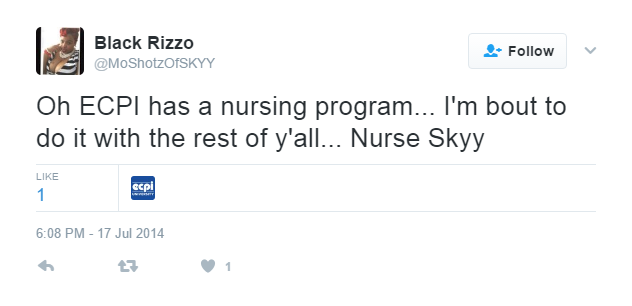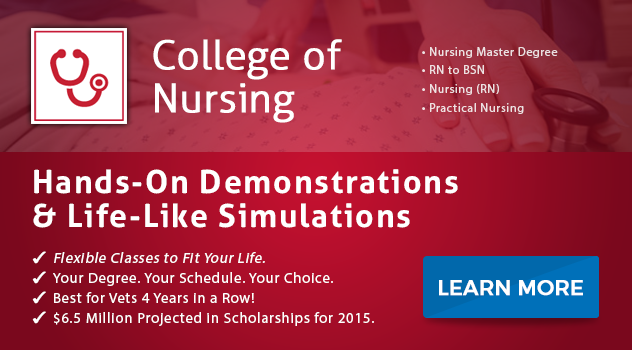How can I Transition to Nursing?
Not everyone ends up in the right career field with the first job they get out of school. Sometimes you know your true path leads to nursing while in school for another program and unable to switch out of it. Sometimes it takes a few years working in a different field to realize this is not what you're supposed to be doing. No matter when you realize you're in the wrong field, you can start transitioning to nursing.
Going back to school for anyone can be intimidating. But with a solid plan in place you can comfortably transition into nursing from the field where you earned your first bachelor's degree. So how do you do it? Well, you can start with a transition college program that takes what you've learned already and helps you to augment your knowledge to include caring for the sick and injured.
Preparing for Accelerated Nursing Programs
As a Bachelor of Science in Nursing (BSN) student, you need to have the focus and fortitude to handle the rigors of an accelerated, full-time program. The coursework covers a wide variety of subjects, such as pharmacology and physiology. You should expect clinical rotations, which are carried out in different health-care environments.
Time management and superior organizational skills play an integral role when studying for the BSN. You need to stay in pace with the coursework because program activities move quickly. Plan your schedule accordingly to maximize on study opportunities.
It is also recommended that you make the most of resources available to you, including web-based materials and student forums. Communicate with instructors about any specific topics that require clarification.
What to Expect
With the program, you can expect an immersive clinical experience in classrooms and simulation labs. The clinical work is based on in-class curriculum whether it covers mental health, maternity nursing, or other topics. The exposure to wide-ranging areas allows you to choose a specialty path.
On the other hand, clinical rotations provide a chance to work with a diverse patient base. This helps you gain a detailed understanding of nursing dynamics and potential challenges. Excelling in the rotations prepares you for a successful career in the field.
You may be assigned a new patient on a weekly basis and required to review their medical condition. This is aimed at giving you an opportunity to formulate a suitable patient-specific care plan. You need to outline observations and tests needed to correctly diagnose and prescribe medications. The tutor reviews the plan.
In addition, you are expected to provide necessary patient care and dispense appropriate medications. The activities form part of the day's clinical coursework, which is carried out under the direct supervision of a nurse educator. The instructor may also ask you to monitor intravenous flows, provide hygiene assistance, care for wounds, and more.
The choice of clinical rotation settings vary by school. Some of the typical settings for clinical experiences boast state-of-the-art medical equipment. This helps boost learning outcomes for all students.
Overview of the Nursing Field
Working as a qualified and licensed nurse involves coordinating patient care and educating individuals about health matters. The professionals also offer emotional support to patients and their loved ones.
Some of the key duties handled by the professionals include:
- Monitor intravenous flows
- Collaborate with other healthcare staff, including physicians and radiographers
- Maintain patient records
- Regularly monitor patient conditions
- Set up patient plans
- Carry out and analyze diagnostic tests
- Operate and monitor medical equipment
Specialty Areas Available in Nursing
When it comes to specialties, the nursing field offers a number of areas that focus on specific patient groups. The areas include:
- Neonatology nurses – provide care to newborn babies
- Cardiovascular – work with patients suffering from heart ailments
- Addiction nurses – provide care to drug addicts
- Genetics nurses – concentrate on patients with genetic disorders
- Critical care nurses – work in intensive-care departments, which handle patients with acute injuries and illnesses that require extensive monitoring
- Nephrology nurses – work closely with individuals suffering from kidney-related ailments
- Rehabilitation – provide expert care to patients with temporary or permanent disabilities
Work Environment
Registered nurses work in a wide variety of medical settings, including outpatient clinics, physicians' offices, hospitals, and more. It is also common for professionals to find jobs in the military and schools. Some nurses travel extensively nationally or internationally providing much-needed care.
Nursing roles require considerable walking, standing, lifting, and bending. As a professional, you are expected to follow strict guidelines to avoid contact with infectious diseases.
Do you think you're ready to make the transition into Nursing? If you're interested in earning an Accelerated Bachelor of science in Nursing (BSN) degree, consider ECPI University's College of Nursing. With a year-round schedule and accelerated classes, you could earn your degree sooner and start working in the nursing field faster. For more information, contact an admissions representative.
It could be the Best Decision You Ever Make!
DISCLAIMER – ECPI University makes no claim, warranty, or guarantee as to actual employability or earning potential to current, past or future students or graduates of any educational program we offer. The ECPI University website is published for informational purposes only. Every effort is made to ensure the accuracy of information contained on the ECPI.edu domain; however, no warranty of accuracy is made. No contractual rights, either expressed or implied, are created by its content.
Gainful Employment Information – Practical Nursing - Diploma
For more information about ECPI University or any of our programs click here: http://www.ecpi.edu/ or http://ow.ly/Ca1ya.




